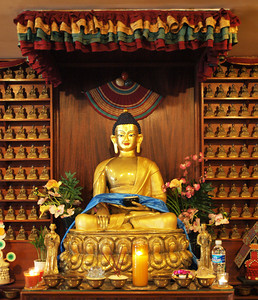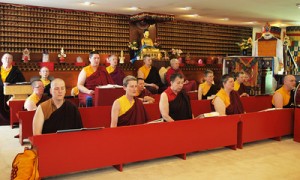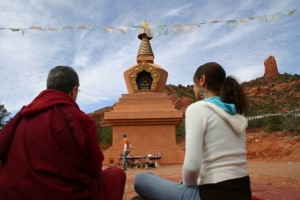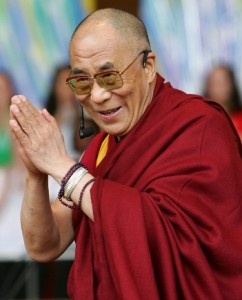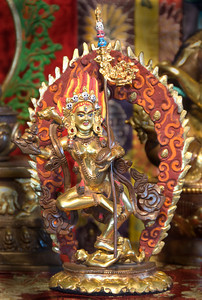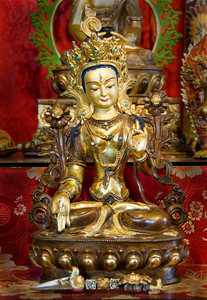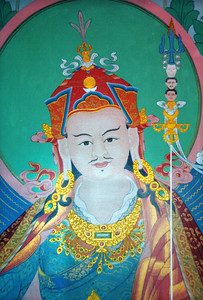An excerpt from a teaching by Jetsunma Ahkon Lhamo from the Vow of Love Series
I wish from my heart that it would be okay to be a renunciate. Because to be a renunciate is to renounce the things that one has desire for, the objects that one grasps, and instead seek only a true source of refuge. To renounce the sources of suffering. There ought to be a place for that in our society. It ought to be okay for anyone to do what they want. It ought to be okay if they want to remain as they are and continue to function in the ordinary ways that we are used to in our society. But it ought to be okay if a person sincerely becomes discontented and wants to seek a supreme refuge that is the end of suffering, which is enlightenment.
You don’t necessarily have to be a Buddhist to adopt these kinds of ideas, although I found for myself that the Buddha’s teaching was the best way to do it. But not only Buddhists can do this kind of thing. In order to do this successfully you have to determine what your supreme refuge is. You have to really review that. This is why I like what the Buddha said, because in the foundational teachings you are never asked to buy something with blind faith. You’re asked to think things out logically.
This is what I suggest you should do. Think to yourself, “Really, how do people suffer? How do sentient beings suffer?” Sentient beings of all kinds, not only people. If you can learn anything about non-physical sentient beings, do that. The Buddha has many teachings on non-physical realms. But, even about just the ones that you know, human beings and animals. Check books out from the library on different life forms and different conditions around the world. Check out books about India. Check out books about Ethiopia. Check out books about different cultures and different ways in which people live. Check out books about different animals and different life forms. How they grow, how they evolve, from insects to lions. Study them all carefully.
You will see that animals are consumed: that they are eaten, and that they eat. That human beings grow sick, grow old, and that they die. That so far, no one has definitely proven they can keep from doing that. Even within that, there are sub-sufferings and different kinds of sufferings. While you are studying all of those things, develop a deep sense of compassion for the endlessness of it. Compassion for the lack of resolution and that everything around you will have its moment of intense suffering; everything and everyone. Develop a deep sense of compassion, that their suffering is endless. That it is unbearable at times. And that there is yet no solution. Think for yourself, what could be the possible solution; try to think one up. Really work that through, down to the place where you’re into the planning stages. You will find it will never work, because we are all filled with the karma of desire. Every one of us.
Having decided for yourself that all sentient beings are suffering so greatly that you can no longer bear it, and having understood that there is nothing else but to end this suffering, then maybe you might also think there’s no other way to spend your life other than to accomplish that for yourself and other sentient beings. Because the only way you can truly benefit beings is if you yourself have achieved some realization and understanding of the causes of their suffering.
Having understood all these things, then you must determine for yourself how you will spend the rest of your life. You must determine this, and it will take every day of your life, because we’ve been trained to do the opposite. You must think for yourself again and again and again, of what use is this life? If I am constantly filled with more suffering, if I am constantly participating in a scenario that always ends up with suffering, how will this life be of any value? And if you come to the solution that this life has value if it is a vehicle for enlightenment, then you should think for yourself, how should I do this? You should examine what you do now; how you spend your day. Then you should think, how have I spent my years? Then you should think, what should I do?
Copyright © Jetsunma Ahkon Lhamo. All rights reserved
